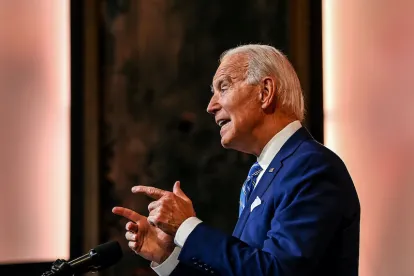As we previously reported, the National Labor Relations Board (“NLRB” or the “Board”) has been undergoing a seismic change of direction. With two memoranda published September 8th and September 15th, NLRB General Counsel (“GC”) Jennifer Abruzzo looks to take further progress toward fulfilling President Biden’s promise to be the “strongest labor President you have ever had.” Following NLRB Chairman McFerran expressly stating her willingness to explore new remedies for unfair labor practice violations, GC Abruzzo has instructed the regional offices to seek expanded remedies in Unfair Labor Practice (“ULP”) litigation and settlement negotiations.
The September 8th memorandum instructed regional offices to seek the following more aggressive remedies for violations of the National Labor Relations Act (“NLRA”) in certain types of cases:
-
Unlawful Terminations: Regions are instructed to seek compensation for consequential damages, front pay, and liquidated backpay in a combined complaint and compliance specification where appropriate. If the aggrieved employee is an undocumented worker, the GC recommends seeking compensation for work performed under unlawfully imposed terms, employer sponsorship of work authorizations, and other remedies designed to prevent unjust enrichment.
-
Unlawful Failure to Bargain: Regions are instructed to seek remedies including setting a bargaining schedule, status and progress reports to the NLRB, reimbursement of other party’s collective-bargaining expenses, reinstating unlawfully withdrawn proposals, and other broad cease-and-desist orders. Remarkably, the memo also mentions that the GC is considering a novel theory premising a monetary damages award based on what the employer speculatively would have agreed, had it fulfilled its bargaining obligations.
-
Unlawful Conduct During an Organizing Drive: The memo provides a wide array of remedies for unlawful conduct including:
-
Increased union access to employees such as provide a union with employee contact information, equal time to address employees if their employer holds a “captive audience” meeting, and reasonable access to all places where notices are typically posted.
-
Reimbursement of the union’s organizational costs.
-
Requiring a principal of the employer or a Board Agent read the “Notice to Employees and Explanation of Rights” (the “notice”) to employees.
-
Publication of the notice in newspapers and other forums paid for by the employer.
-
Management and supervisor training requirements on the NLRA.
-
Extensive as it may be, this list is not exhaustive. The GC further advised that “Regions should request from the Board the full panoply of remedies available to ensure that victims of unlawful conduct are made whole for losses suffered as a result of unfair labor practices.”
The September 15th memorandum specifically addresses remedies in the context of settlement negotiations. Again recognizing the Chairman’s recently signaled willingness to explore new remedies including awards of compensatory damages, the GC suggests that Regions seek the following in settlement negotiations:
-
Non-backpay compensation for unlawfully fired employees including: interest or late fees on credit cards incurred to cover living expenses; penalties incurred by prematurely withdrawing money from a retirement account to cover living expenses; loss of a home or a car due to inability to keep up with loan payments; damages caused to an employee’s credit rating following firing; compensation for financial losses from having to liquidate a savings/investment account to cover living expenses; fees and expenses required to obtain or renew a clearance, certification, or license that had been denied or lost; the cost of obtaining comparable health insurance coverage/other medical expenses incurred due to the loss of coverage; and moving expenses.
-
Front pay where the employee is unwilling to pursue reinstatement.
-
Incorporating default language into settlement agreements.
-
Requiring letters of apology.
-
Sponsorship of work authorizations for undocumented workers.
-
Security provisions such as confessions of judgment or promissory notes.
-
Admission clauses for repeat violators.
-
Notices to employees.
Key Takeaways
These memoranda send a clear message to employers that the NLRB will be aggressively seeking significant remedies. These new remedies reflect a drastic change in the Board’s view of what remedies are available under the NLRA. As such, employers would do well to be prepared for a serious rise in enforcement actions and the remedies sought in such actions.
Developments at the NLRB are likely to continue at a rapid pace, we will monitor developments in this area and provide updates when relevant.
Co-authored by Myles Moran, a law clerk in the firm’s New York office.





 />i
/>i

